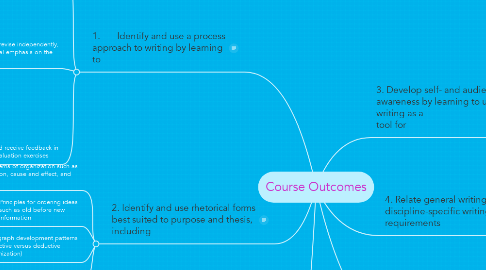Course Outcomes
by Fathi Mubaraki


1. 2. Identify and use rhetorical forms best suited to purpose and thesis, including
1.1. Rhetorical patterns of organization such as problem/solution, cause and effect, and exemplification
1.2. Principles for ordering ideas such as old before new information
1.3. Paragraph development patterns (inductive versus deductive organization)
1.4. Effective introductions and conclusions
2. 1. Identify and use a process approach to writing by learning to
2.1. generate ideas through free-writing, mind mapping, pair and small group discussion
2.2. draft and revise independently, with special emphasis on the ability to
2.2.1. revise ideas for depth, clarity, and organization using ARMS (Add, Remove, Move, Substitute) and other principles for organizing ideas such as mind mapping or outlining
2.2.2. revise writing within and between paragraphs to improve coherence · by recognizing and employing accurate sentence structure · by striving for more accurate and effective word choice
2.2.3. Revise the appearance of your draft by correcting formatting and mechanics
